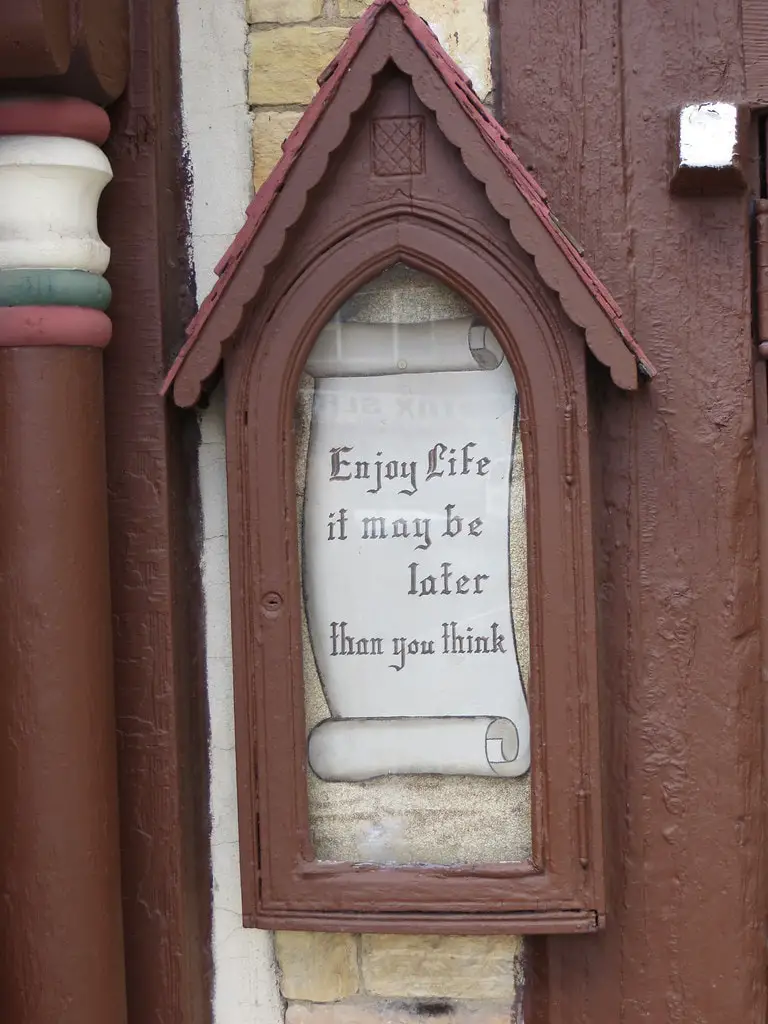The Founding of Klas Restaurant
In the bustling streets of Cicero, Illinois, a culinary landmark was born in 1922. Adolph Klas, a native of Plzeň, Czech Republic, envisioned bringing Bohemian cuisine to the heart of America.
After working at prestigious hotels like the Blackstone Hotel, the Edgewater Beach Hotel, and the Drake Hotel, he founded Klas Restaurant. This establishment was more than just a place to dine; it symbolized cultural heritage and a gathering spot for the Czech American community.
Adolph's passion for food and authenticity quickly made Klas Restaurant a beloved destination. Traditional Czech recipes marked the restaurant's early days, served with a touch of elegance that was rare in those times. Adolph's journey from Plzeň to Cicero was a personal adventure and a culinary expedition that enriched the local food scene.
The restaurant's success was not merely a result of its delicious offerings but a testament to Adolph's commitment to his roots. Klas was a piece of home that Adolph brought with him, a place where fellow immigrants could find comfort and connection. The foundation of Klas Restaurant was not just an entrepreneurial endeavor but a cultural statement.
Artistic and Architectural Marvel
Walking into Klas Restaurant was like stepping into a different era. In 1934, Klas Restaurant underwent a redecoration that showcased the artistic talents of Albert Rohls and Mary Adamec.
Gennadi Gordeyev, a Russian singer and artist known for opposing the Bolsheviks during the Russian Civil War, contributed multiple murals to the restaurant's Russian Room. These artistic touches added a layer of sophistication and cultural richness that was unparalleled.
The bar room on the first floor of Klas Restaurant was reconstructed to mirror the look of a Bohemian tap room from the 14th Century. The hand-carved woodwork, wrought-iron balcony, stained glass windows, and historically themed paintings and murals created an ambiance that transported diners to different places.
Each dining room was named after its respective decor, such as the Moravian Room, the Russian or Boyar Room, and the Garden Room.
The attention to detail in the decor was about aesthetics and a celebration of heritage. The European antiques, chandeliers, cuckoo clocks, and other art objects were carefully curated to tell a story. Klas was a museum of culture, a place where history and artistry were served alongside delicious meals.
The artistic and architectural marvel that was Klas Restaurant became a symbol of pride for the Czech community. It was a place where the past was honored, traditions were preserved, and the beauty of Bohemian culture was showcased for all to see.
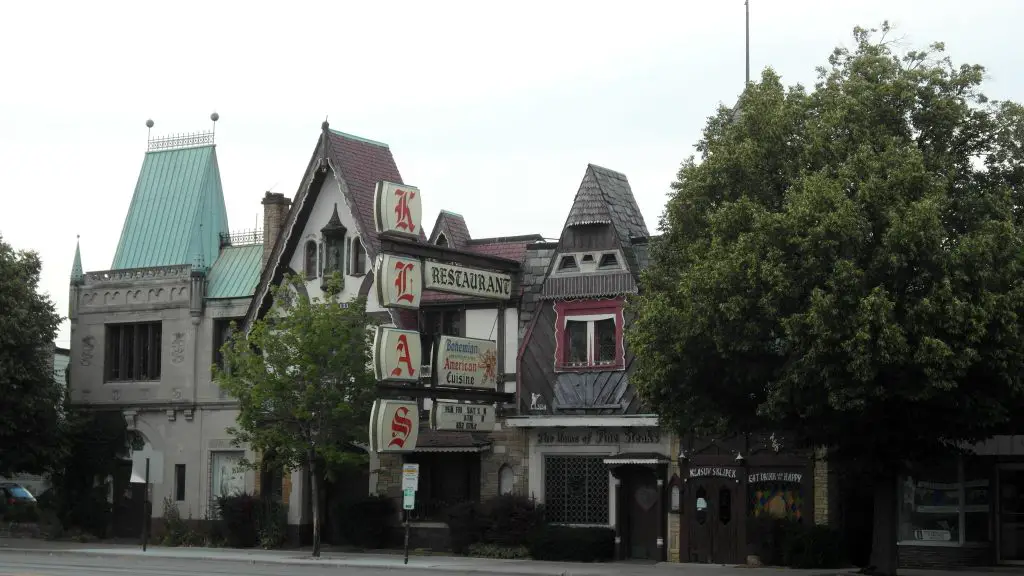
Notable Guests and Events
Klas Restaurant was a local favorite and a place of prestige that attracted high-ranking officials and celebrities. President George H. W. Bush dined there, as did several Czech presidents.
The restaurant's reputation for excellence made it a preferred venue for political gatherings, such as Judy Baar Topinka's campaign launch for Governor of Illinois in 2005.
Klas Restaurant was the venue for a special reception in 2012 to honor the Czech Republic's Prime Minister and Government Members. Dignitaries like Prime Minister Petr Nečas and former United States Secretary of State Madeleine Albright attended the event. Such gatherings were social events and diplomatic engagements that fostered international relations.
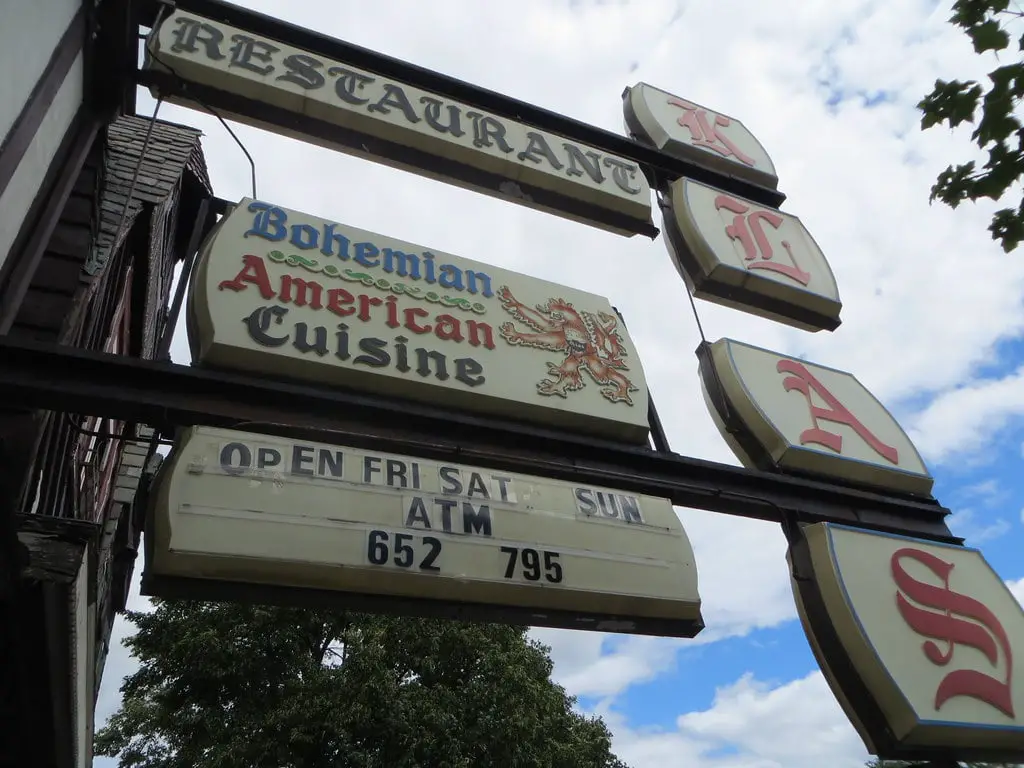
But Klas was not only about politics and power. It was where artists like Kim Novak found inspiration, local legends like Chicago Mayor Anton Cermak felt at home, and composers like Sigmund Romberg celebrated creativity. Klas Restaurant was a melting pot of ideas, a platform for dialogue, and a stage for cultural expression.
The walls of Klas were witnesses to history. They saw the convergence of politics, art, and community. They heard the laughter of celebrations, the murmurs of negotiations, and the applause of agreements. Klas was a theater of life where the ordinary and extraordinary coexisted.
Ownership and Management
Adolph's family carried forward the legacy of Klas Restaurant after he died in 1962. His widow, Ella, ran the restaurant until she died in 1966. Ella's brother, Charlie Hoch, took over the reins and managed the restaurant until 1978. The family's dedication to maintaining the authenticity and quality of Klas was evident in every aspect of the restaurant.
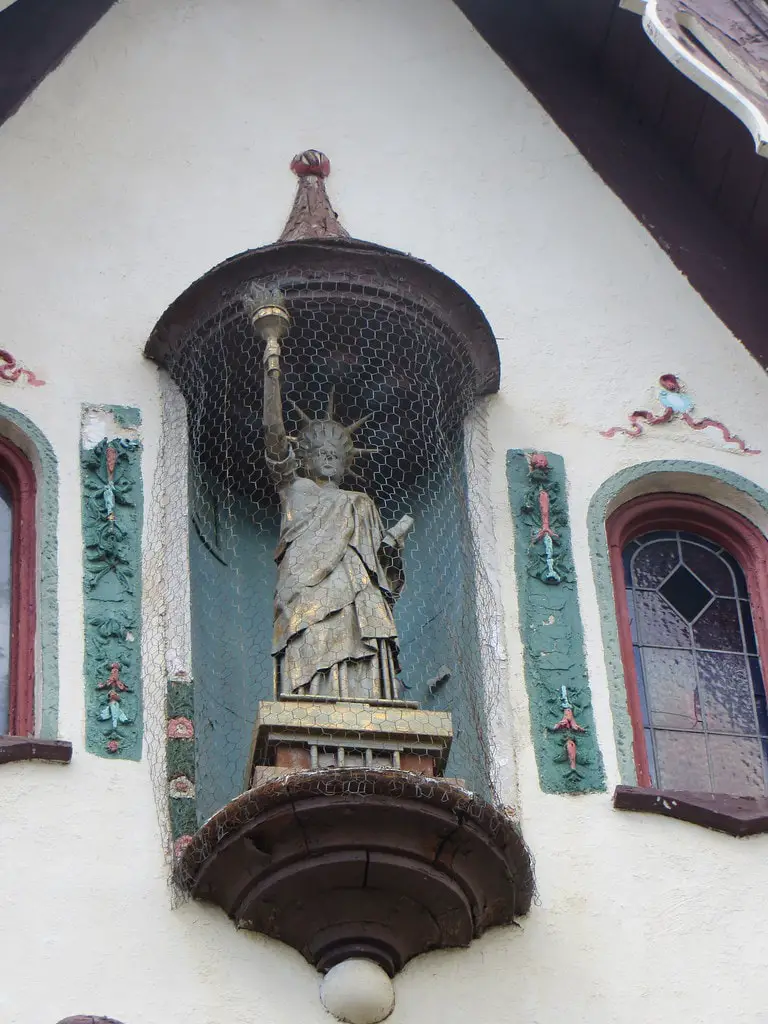
1980 a new chapter began when the restaurant was sold to Milena, Laddie Kindl, and Jaroslav Kratky. The new owners embraced the heritage of Klas and continued to uphold its reputation for excellence. The ownership transition was not just a business transaction but a passing of the torch, a commitment to preserving a cultural landmark.
The management of Klas Restaurant was not just about running a successful business; it was about stewarding a legacy. The owners, both old and new, understood the significance of Klas to the community. They knew Klas was not just a place to eat; it was a symbol of identity, a beacon of tradition, and a sanctuary for memories.
The story of Klas's ownership is a testament to the power of continuity and commitment. It's a story of love for heritage, respect for craftsmanship, and dedication to community. It's a story that transcends business and touches the heart of what it means to be a part of something greater.
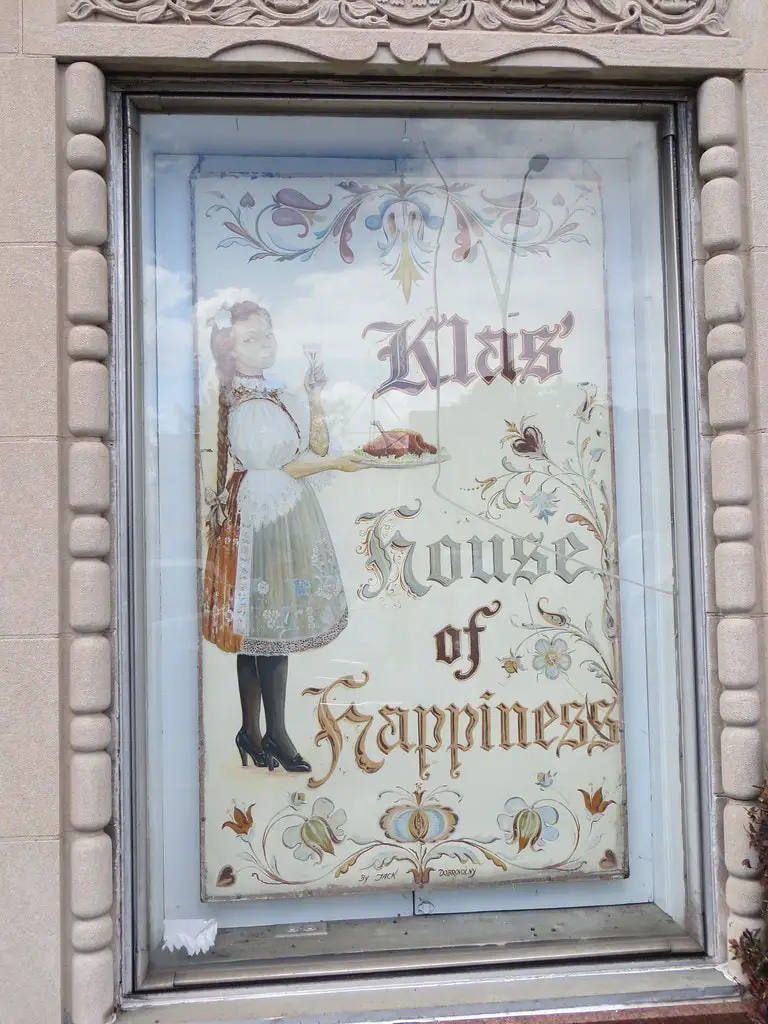
Closure and Efforts to Save the Building
The doors of Klas Restaurant closed in 2016, but the efforts to preserve its legacy did not end. In 2019, Klas Restaurant's building was purchased by developers, sparking fears of demolition.
The local community, unwilling to lose this history, rallied together. Entrepreneur Marek Kutek and other concerned individuals spearheaded a fundraising effort to buy and refurbish the building.
Their efforts were recognized when Landmarks Illinois named the building one of the state's most endangered historic sites in May 2021. The fight to save Klas was not just about preserving a structure; it was about honoring a heritage, safeguarding a memory, and protecting a symbol of cultural identity.
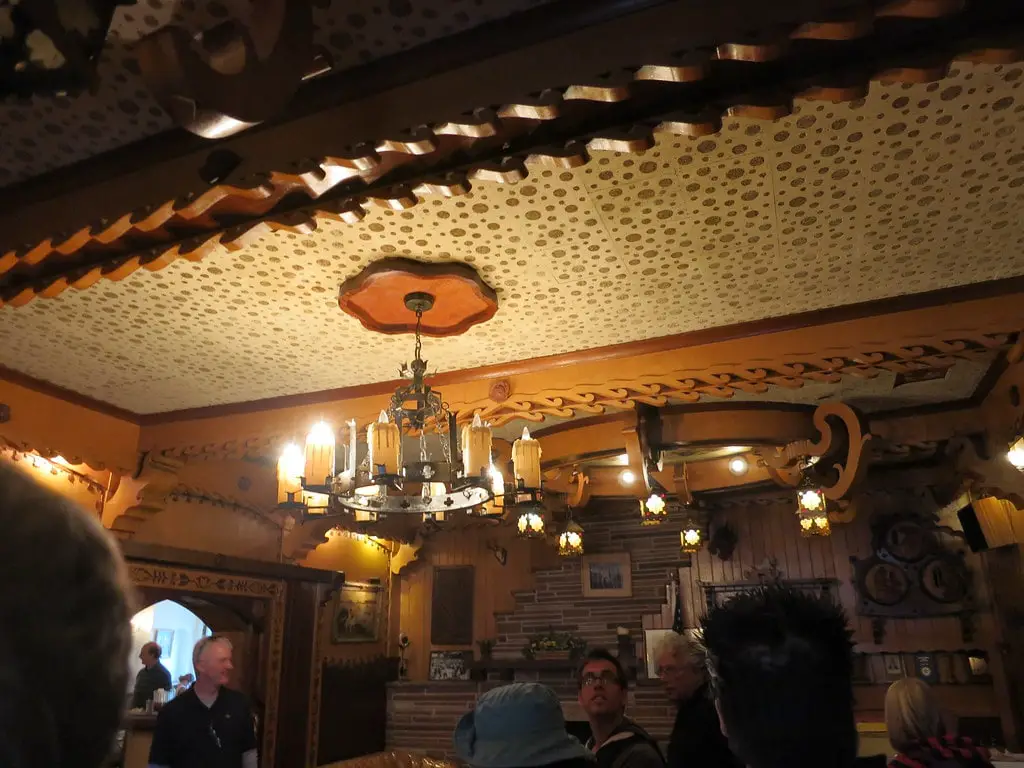
Despite the passionate efforts, the attempts to save Klas were unsuccessful. The collective aspirations of the community were shattered as the building of Klas Restaurant was torn down in the latter part of May and early June 2022. The loss was not just physical; it was emotional, a wound in the heart of Cicero.
Yet, even in loss, there was a glimmer of hope. Many items were salvaged during demolition, including murals and artifacts. The spirit of Klas Restaurant lived on in memories and tangible remnants that would continue to tell its story.
Demolition and Legacy
The year 2022 marked the end of an era when Klas Restaurant was demolished, precisely 100 years after Adolph and Ella Klas started serving Czech food at their famous establishment. The demolition was not just the tearing down a building; it was the closing of a chapter in Cicero's history.
But the legacy of Klas was not buried in the rubble. Thanks to the salvaging skills of Jimmy Nuter of American Vintage Reclamation, many items were saved, including murals painted in the Zhivago Room. These pieces of history were not lost; they were preserved, ready to find a new home in museums and exhibitions.
The Chicago History Museum and the National Czech and Slovak Museum and Library in Iowa plan exhibits featuring these salvaged pieces and personal memorabilia from the Klas family. The story of Klas Restaurant will continue to be told through words and artifacts that witness its grandeur.
The legacy of Klas is not confined to the past; it lives on in the hearts of those who dined there, in the memories of those who celebrated there, and in the artifacts that continue to tell its story. Klas is a memory, a heritage that continues to inspire and connect.
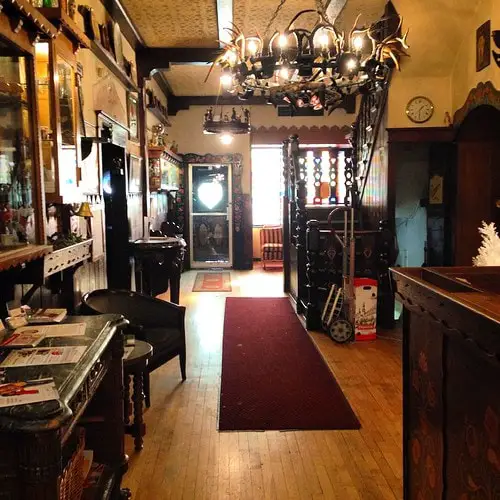
Conclusion
The story of Klas Restaurant is a tapestry woven with threads of culinary excellence, artistic brilliance, political significance, and cultural pride. It's a story that resonates with the people of Cicero and beyond, transcending time and space.
Klas was a restaurant and a landmark, symbol, and legacy. It was a place where history was made, traditions were honored, and community was celebrated. The demolition of Klas was not the end; it was a transition, a transformation from a physical space to a timeless memory.
The legacy of Klas is a reminder of the power of heritage, the beauty of art, the significance of community, and the resilience of memory. It's a story that continues to inspire, a story that lives on, a story that will never be forgotten.
